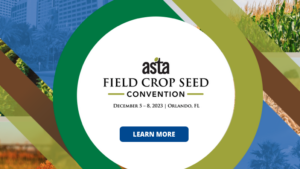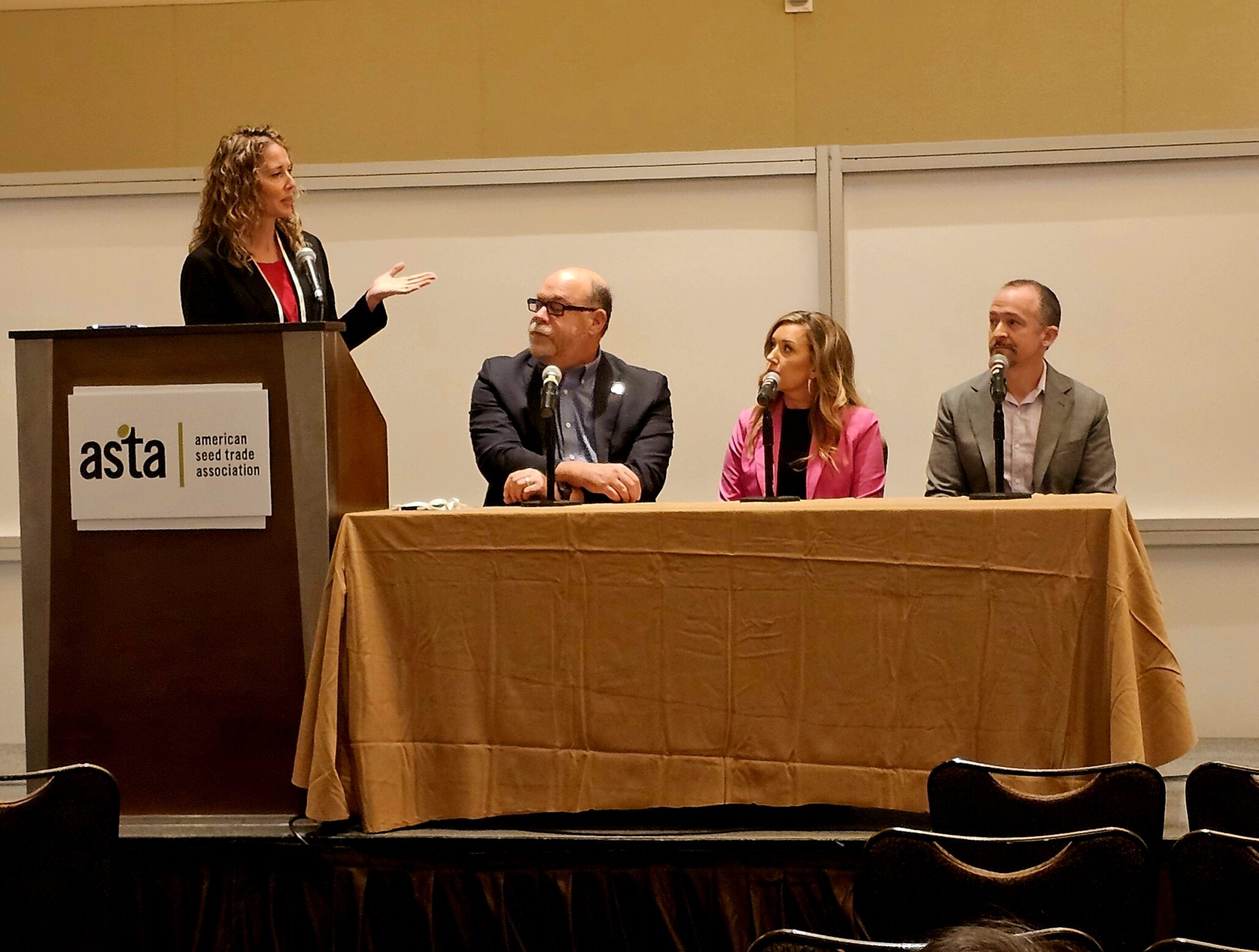Experts will be fielding questions about the future of the farm and lawn seed industry at ASTA’s annual Farm and Lawn Seed Conference.
Organizers of the American Seed Trade Association’s annual Farm and Lawn Seed Conference are trying something new this year.
Held in conjunction with the Western Seed Association’s annual meeting, the conference takes place Nov. 6-7 in Kansas City, Mo. For the first time, it will feature a value chain panel discussion with industry leaders fielding questions from the audience as well as ones gathered in advance.
“We’re trying something a little different. We thought that it would be of interest to folks who are in attendance to have a chance to get their questions answered and to be a little bit more interactive,” says Pat Miller, director of state affairs for ASTA, who’s also a key organizer of the event.
Miller notes they’re aiming to have six to eight experts signed up for the panel discussion, which will address industry concerns and provide insights into future trends in the farm and lawn seed industry.
Darcy Turner, owner of Texas-based Turner Seed, will serve as moderator. He says the panelists will represent not only different geographic regions, but also different facets of the business from native grasses to small grains.
Issues that Turner expects to be covered in the panel discussion include how such factors as the next federal administration, commodity prices and economic uncertainty will affect the farm seed business.
The panel discussion is scheduled for the afternoon of Nov. 6. Earlier that afternoon, ASTA’s Cover Crop Working Group will look at what’s new in cover crop species research.
Participants in that meeting will also be provided with an update on the Soil Health Partnership, the ag industry initiative launched in 2014 aimed at measuring and communicating the economic and environmental benefits of different soil management strategies to farmers.
According to Miller, cover crop sessions are always popular among conference attendees, and this year shouldn’t be any different.
“It’ll be a good session,” he says. “It’s always packed.”
Also on Nov. 6, ASTA’s Environment and Conservation Seed Committee Meeting will meet to discuss plans for 2017. In addition, issues pertaining to native seed testing and lab uniformity will be examined, and there will also be an update on the activities of the U.S. Department of the Interior/Bureau of Land Management related to environment and conservation seed.
The conference wraps up with a town hall breakfast meeting the morning of Nov. 7. The meeting will feature speakers in various industry, government and regulatory roles, primarily within ASTA and other seed organizations.
“Historically we’ve given updates on ASTA activities at that meeting, but this year we’re going to broaden that out,” Miller says. The latest ASTA news will be shared with attendees, but other regional and state seed associations have also been invited to provide updates on their activities.
“Plus there’ll be discussion of our new communications program called ‘Better Seed, Better Life’ that basically communicates the benefits of professionally produced seed to growers, as well as just general consumer education about seed,” Miller says.
“It’ll be interesting,” he adds. “There’s a lot to cover in a short amount of time, so we’ll keep it moving, that’s for sure.”











